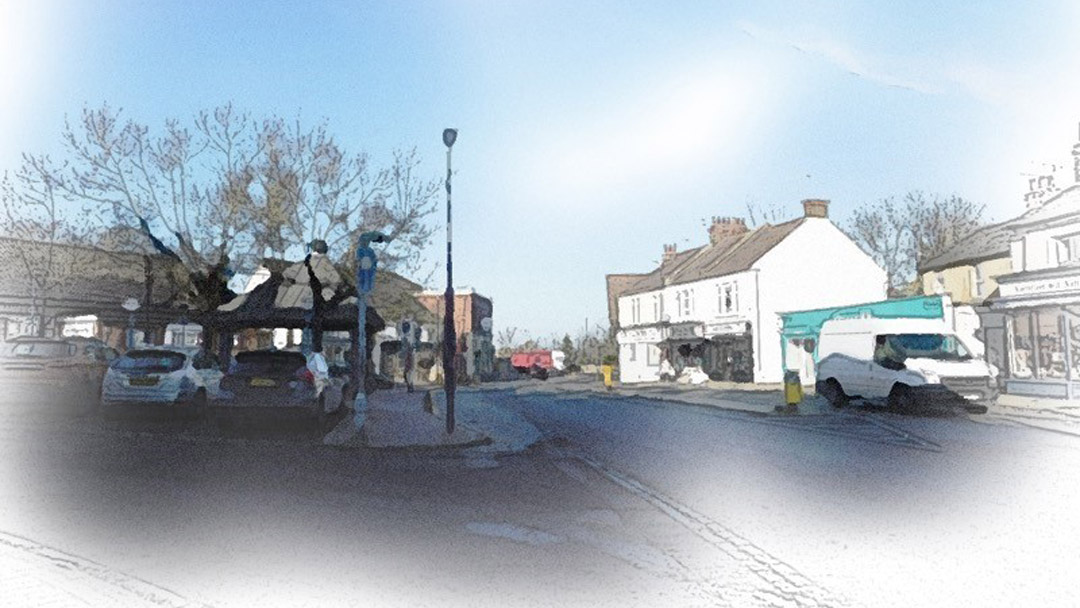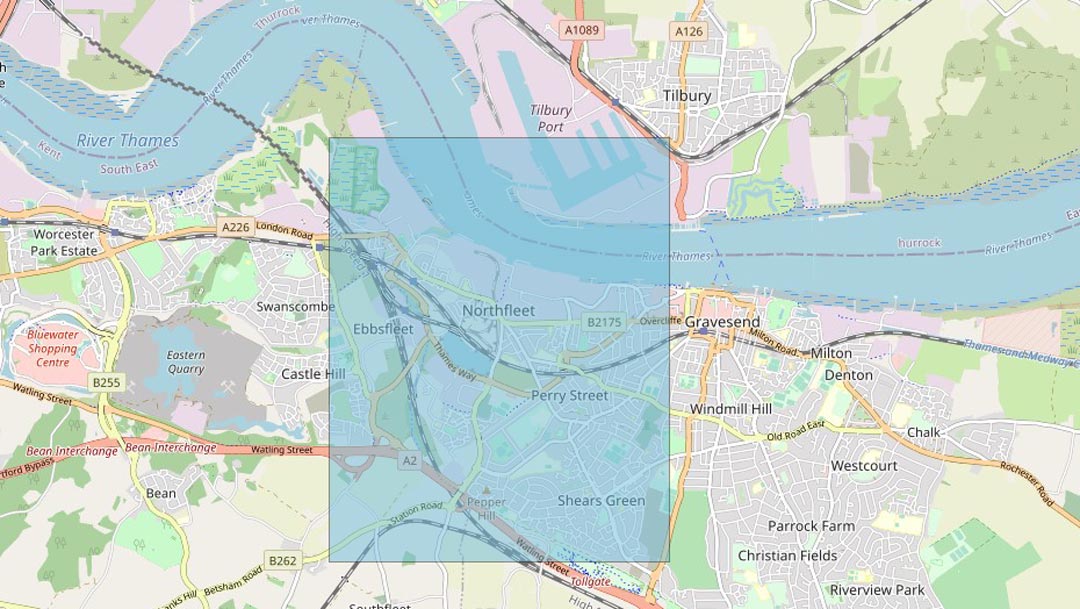A Rich History
A Richer Future

Our Background
Northfleet Central Charitable Incorporated Organisation (CIO) was registered as a Charity in March 2020.
Located within the Gravesham Borough of Kent, Northfleet is an area identified as a community with significant societal issues and disadvantages, despite having a rich cultural heritage and history.
A Great Start
The Northfleet Big Local (NBL)Project began 10+ years ago and was a residents Partnership formed of 15 local residents, who worked with a variety of local voluntary groups, organisations and local community leaders.
NBL actively engaged with the community, with several core projects successfully funded, managed and maintained as well as many small events, projects and initiatives that have garnered great interest and participation.
In 2020 NBL donated start up funds to Northfleet Central CIO.

The role of Northfleet Central CIO
The constitution of NCCIO requires the Trustees to use their breadth of experience and knowledge to work for the benefit of the residents of Northfleet with the overall aim of improving their lives and life chances.
Our role is to take a strategic and forward thinking overview, by working with organisations and other charities that were excluded previously under the terms of the national Big Local scheme.
Extracts from our Business plan 2024
Executive Summary
Northfleet Central Charitable Incorporated Organisation (NCCIO) was registered as a Charity in March 2020 to support and further develop the work initially begun by the Northfleet Big Local Project (NBL). In May 2022 the two organisations formally ended their relationship. The initial difficulties created by the Covid Pandemic severely affected our operation and that of many other charities and community groups. In2023 the situation normalised and the Trustees are able to meet face to face and via Teams where appropriate.
The CIO continues to be represented on many consultation groups and has responded in writing to requests for comment from Local Councils, Ebbsfleet Development Corporation and property developers working on projects within Northfleet.

Mission Statement
The application to register anew CIO was formally submitted in June 2019 with the new charity being successfully registered on 12th March 2020 Registered number 1188505.
From the Constitution the Objectives are:
1. To promote for the benefit of the inhabitants of Northfleet, Kent and the surrounding area the provision of facilities for recreation or other leisure time occupation, of individuals who have need of such facilities by reason of their youth, age, infirmity or disablement, financial hardship or social and economic circumstances, or for the public at large in the interests of social welfare and with the object of improving the condition of life of the said inhabitants.
2. To develop the capacity and skills of the members of the socially and economically disadvantaged community of Northfleet in such a way that they are better able to identify, and helpmeet their needs and to participate more fully in society.
The Focus of the new CIO is:
The relief of Poverty
The advancement of Education
The advancement of Health
The advancement of Citizenship and Community Development
The relief of those in need by reason of youth, age, ill health, disability, financial hardship or other disadvantage
The Trustees:
Stephen Stamp
Andrea Jackova
Lauren Sullivan
Paul Avery
Jag Klair
Sam Watts
Abisola Oshoteku
Neege Allen-Navarria
The CIO can have up to 10Trustees at any one time.
What our CIO can do to help:
The CIO Trustees bring different life experiences, local knowledge and hopefully some different and innovative solutions. The CIO has continued to adopt two specific strategies to engage with the community :
a) Identify and deliver short term wins that can make small but needed changes using the local knowledge and experience of the Trustees. For example we have supported organisations to make their projects more effective, more focused on need, measurable and with the capability to deliver things that meet our objectives.
b) By interacting with other organisations and groups build a more strategic and analytical consensus about what is needed and what can be achieved. At all times we work to ensure our understanding of what the community needs is grounded in reality and based on practical and appropriate solutions to the problems that exist.

Business Plan – Detail
In line with the overall aims of our constitution The Trustees are united in wanting to effect long term and permanent change for the better in the lives of the residents of Northfleet.
· The relief of Poverty
· The advancement of Education
· The advancement of Health
· The advancement of Citizenship and Community Development
· The relief of those in need by reason of youth, age, ill health, disability, financial hardship or other disadvantage.
To meet these complex needs activity and support needs to be carried on at different levels simultaneously . It is also important that our plan is flexible and the Trustees can adapt or amend the plan depending on prevailing circumstances.
· Build on the Community spirit that came alive during Covid.
· Develop measures to reduce Anti-social behaviour and other crime
· Develop plans for a Youth Activity Centre
· Produce initiatives to increase Employment
· Work with Schools to encourage pupil development
· Engage with other organisations and the Community
· Support the disadvantaged
· Manage our own finances in an effective way.
· Seek out and use best practice from other organisations.

Building the Strategy
Drawing on research to bringing change to Northfleet – one option.
The issues in Northfleet are long standing, run deep in the community and will not be solved by any one initiative or organisation acting in isolation.
It therefore follows that it is reasonable to believe that Northfleet Central CIO will find it difficult to make any lasting change without adopting a different strategy which must include working closely with other like minded organisations, including local authorities and other statutory bodies.
The section draws extensively from a paper entitled “Neighbourhood Management and the Future of Urban Areas” by Anne Power (January 2004) from the Centre for Analysis of Social Exclusion and is about neighbourhoods similar to Northfleet and how change can be effected by organisation and management. It is about the problem solving and the long term strategy that is needed to change neighbourhood conditions and environments and how local government and local organisations need to work together to deliver the needs of the community. While it can be dangerous if not impossible to quickly compare one community with another, it is folly to ignore the experience of similar areas and particularly sad not to attempt to avoid the same traps that others have found themselves in.
From the beginning it should be clear that the new CIO does not have the capability or the resources to adopt a total ‘Neighbourhood Management‘ approach nor does this plan suggest it, but many of the techniques implied in the process can be used to effect lasting change in the Northfleet community. The CIO should be able to engage with and seek the co-operation and support of as many local services as possible and through that process ensure that essential services are delivered.
“There is a strong social component to neighbourhoods. People connect with their neighbours in many, often unspoken ways – security, cleanliness, the environment, social behaviour, networks and conditions, access to basic services such as schools, doctors, transport and shops. Neighbourhoods provide important supports, particularly to families with children and more elderly residents.” Anne Power.
Without special support, declining neighbourhoods may enter a spiral, leading to eventual breakdown. They simply do not have the organisational resources to hold up under intense social pressure if conditions begin to get out of control. This is already happening in many parts of the UK and arguably in Northfleet as well. In addressing the situation successful neighbourhoods have adopted various measures which include:
A Neighbourhood Office, a local base which provides a practical focus for essential services such as cleaning, security and environmental care. Youth activities and direct resident priorities can run alongside housing management. There is no reason why a successful Community Centre should not play a part in this role, working jointly with the Council by providing space and facilities, sharing costs and encouraging members of the community to avail themselves of the wide variety of activities on offer.
Local Caretaker/Warden roles can identify with the local community by spending time on the ground, typically paying attention to security, cleaning, repairs, environmental care, visits to vulnerable residents, youth and community liaison. Warden and caretaking services offer employment possibilities to people of the local neighbourhood. Reduced vandalism and crime can be benefits when Wardens operate in an area. The presence of properly trained and supervised wardens offer a cost effective resource that people find helpful and friendly.
A dedicated neighbourhood police unit is the optimum local service and maybe essential to winning over the co-operation of residents. Dealing with anti-social behaviour and more serious crime is central to any neighbourhood in disadvantaged areas. High levels of crime drive law-abiding residents away or cause the vulnerable to feel insecure even in their own homes. Sustained, visible, ground level policing, linked to a properly constituted warden scheme can transform conditions. The warden is often seen as less authoritarian and does not operate in an enforcement role and therefore may build confidence more easily than the Police. Inevitable cost restraints for the Police mean that when a problem is perceived to be solved the resources move on to another problem. It is vital that a warden system is embedded securely in the community before that happens. Certainly in Northfleet there is an issue with Police response and public trust. Building a dedicated neighbourhood warden programme could be the half way house that breaks the log jam.
Repairs and maintenance matter for pavements, street lighting, gates, fences, bollards, open spaces, empty buildings as well as for homes. It is the service that often most clearly signals neighbourhood conditions. The ability of an area to ‘Build community spirit’ is simply defined as the desire to respect your neighbourhood, keep it clean, report faults (that are speedily repaired!) and above all respect your neighbours, is partly dependent on the area’s history of community activism and the profile of residents.
There is significant experience of community centres throughout England providing the glue that binds a community together.
Health and Social Services working between the neighbourhood and the health authority can provide the opportunity for focussed community health projects. Health issues affect low income areas: diet, smoking, disability, depression, asthma, isolation of the elderly and vulnerable, drug and alcohol abuse. By focussing on prevention the emphasis shifts to some of the core problems of the neighbourhood rather than the treatment of the individual. Obesity and exercise are linked, as is the lack of open spaces and opportunities for sport within the Northfleet Community. Mental health, the elephant in the room in many urban neighbourhoods, whether it is the plight of the elderly through loneliness or the desperation of the young without work or any way to advance through life. It must be cost effective to spend scarce resources on building a future rather than putting right the failings of the past. There is considerable scope for greater joint working between the schools and the neighbourhood by integrating schools far more into the community. In an area short on public space, halls for activities and with a lack of suitable activities for young people, it is strange that schools are not used in more imaginative ways.
Employment or the lack of it is a constant issue in Northfleet, yet it is an area surrounded by development and potentially with unlimited employment opportunities. There needs to be a focus on employing local people where possible in the housing and neighbourhood services, and formal mechanisms for linking residents to the wider job market. By raising employment, money is channelled into the local economy. This is too important to be ignored. Neighbourhood Management experience throughout the country that for example the inclusion of ‘local’ representatives on interview panels for the appointment of local staff, could improve the recruitment of local people.
This is not rocket science. The CASE Paper suggests that many of the ideas for neighbourhood management have been borrowed from the much more commercially driven successes of town centre management where it can be shown that reduced costs are achieved by coordinating the basic services: cleaning, security, environmental care and resulting in customers feeling better about their experience.
The main requirement is a clear strategy and a coordinated will to deliver it. Northfleet deserves such a strategy with Council, Traders and Local Organisations each playing a part with the overall aim of reducing crime and vandal damage, keeping public areas clean, attractive and in good repair, improving employment opportunities and the health and well being of the community.
Northfleet Central CIO can act as a catalyst for this process.
About Northfleet
Northfleet has been a community since Saxon times and was a settlement next to the Thames in Roman times. In more modern history Northfleet became a town in 1874. with a rich history of industry based on Cement, Paper and Metals. The town enjoyed a prosperous period during the 19th century with steamboats plying between Gravesend and London, and visitors flocking to the area to visit local attractions, however, slowly over the next century the identity of the town was subsumed by their ever expanding neighbour Gravesend.
The history and culture is inevitably built around the town’s industrial heritage. Based on a busy waterway at a point where higher land came close to the river, it was an obvious place for industry to be located. The river provided water supplies and the means whereby raw materials and products could be transported.
The Romans first began to dig chalk from the area and it could be said that indirectly this led to the Cement Industry which requires plentiful water supplies, and chalk as its main ingredients. In 1796, kilns were set up on Northfleet Creek to make Roman cement, it was the beginning of a large complex of cement works along this stretch of the river.
The manufacture of Portland Cement began in 1846 and by 1900, there were nine cement works operating on the Thames between Swanscombe and Gravesend. The last cement plant in Northfleet ceased operation in 2008.
Today paper milling in Northfleet takes place in a large Bowaters (now Kimberly-Clark) paper mill built in 1923 and makes a wide range of products. The metal industry is represented by Britannia Refined Metals which has a refinery producing lead and silver.
Northfleet also had a rich history of shipbuilding which by 1800 resulted in the town being the home of numerous shipyards which had produced many fine vessels for the East Indies and West Indies services, and for the Royal Navy. Sadly in many ways the Industrial period of Northfleet has passed its best, but has left behind buildings and artefacts that still have meaning to the elderly population and are deserving of restoration, preservation or recording.
The identity of Northfleet is intrinsically linked to its Industry. The rows of houses built for workers stand side by side with magnificent Victorian mansions built for business owners and managers. Public buildings now converted to rest homes and houses in multiple occupation result in the dilution and in many cases, disappearance of social and cultural history. Over the years the demographic of Northfleet has changed with one reason being the influx of immigrants. Specifically in the last few years Roma Czech and Slovak (RCS) immigrants have brought with them another tranche of historical and cultural traditions quite different, but nevertheless equally important if they are to integrate and progress within the community.
Much of the original housing stock has deteriorated or been replaced by average quality social housing. The urban landscape is bleak in parts where areas await demolition or development. All this in marked contrast to the Ebbsfleet Garden City development that is slowly surrounding the old community, increasing the feeling of isolation and serving to exaggerate the divide between the haves and the have nots.
There are many casualties of this situation, from the plight of the elderly feeling increasingly isolated to the loss of hope by young people who lack employment, recreation facilities and the opportunity to realise their ambitions. By any measure Northfleet is and has been for some time a deprived community, one that badly needs a strategy to help it turn around.

Drawing on Research
Drawing on research to bringing change to Northfleet – one option.
The issues in Northfleet are long standing, run deep in the community and will not be solved by any one initiative or organisation acting in isolation.
It therefore follows that it is reasonable to believe that Northfleet Central CIO will find it difficult to make any lasting change without adopting a different strategy which must include working closely with other like minded organisations, including local authorities and other statutory bodies.
The section draws extensively from a paper entitled “Neighbourhood Management and the Future of Urban Areas” by Anne Power (January 2004) from the Centre for Analysis of Social Exclusion and is about neighbourhoods similar to Northfleet and how change can be effected by organisation and management. It is about the problem solving and the long term strategy that is needed to change neighbourhood conditions and environments and how local government and local organisations need to work together to deliver the needs of the community. While it can be dangerous if not impossible to quickly compare one community with another, it is folly to ignore the experience of similar areas and particularly sad not to attempt to avoid the same traps that others have found themselves in.
From the beginning it should be clear that the new CIO does not have the capability or the resources to adopt a total ‘Neighbourhood Management‘ approach nor does this plan suggest it, but many of the techniques implied in the process can be used to effect lasting change in the Northfleet community. The CIO should be able to engage with and seek the co-operation and support of as many local services as possible and through that process ensure that essential services are delivered.
“There is a strong social component to neighbourhoods. People connect with their neighbours in many, often unspoken ways – security, cleanliness, the environment, social behaviour, networks and conditions, access to basic services such as schools, doctors, transport and shops. Neighbourhoods provide important supports, particularly to families with children and more elderly residents.” Anne Power.
Without special support, declining neighbourhoods may enter a spiral, leading to eventual breakdown. They simply do not have the organisational resources to hold up under intense social pressure if conditions begin to get out of control. This is already happening in many parts of the UK and arguably in Northfleet as well. In addressing the situation successful neighbourhoods have adopted various measures which include:
A Neighbourhood Office, a local base which provides a practical focus for essential services such as cleaning, security and environmental care. Youth activities and direct resident priorities can run alongside housing management. There is no reason why a successful Community Centre should not play a part in this role, working jointly with the Council by providing space and facilities, sharing costs and encouraging members of the community to avail themselves of the wide variety of activities on offer.
Local Caretaker/Warden roles can identify with the local community by spending time on the ground, typically paying attention to security, cleaning, repairs, environmental care, visits to vulnerable residents, youth and community liaison. Warden and caretaking services offer employment possibilities to people of the local neighbourhood. Reduced vandalism and crime can be benefits when Wardens operate in an area. The presence of properly trained and supervised wardens offer a cost effective resource that people find helpful and friendly.
A dedicated neighbourhood police unit is the optimum local service and maybe essential to winning over the co-operation of residents. Dealing with anti-social behaviour and more serious crime is central to any neighbourhood in disadvantaged areas. High levels of crime drive law-abiding residents away or cause the vulnerable to feel insecure even in their own homes. Sustained, visible, ground level policing, linked to a properly constituted warden scheme can transform conditions. The warden is often seen as less authoritarian and does not operate in an enforcement role and therefore may build confidence more easily than the Police. Inevitable cost restraints for the Police mean that when a problem is perceived to be solved the resources move on to another problem. It is vital that a warden system is embedded securely in the community before that happens. Certainly in Northfleet there is an issue with Police response and public trust. Building a dedicated neighbourhood warden programme could be the half way house that breaks the log jam.
Repairs and maintenance matter for pavements, street lighting, gates, fences, bollards, open spaces, empty buildings as well as for homes. It is the service that often most clearly signals neighbourhood conditions. The ability of an area to ‘Build community spirit’ is simply defined as the desire to respect your neighbourhood, keep it clean, report faults (that are speedily repaired!) and above all respect your neighbours, is partly dependent on the area’s history of community activism and the profile of residents. There is significant experience of community centres throughout England providing the glue that binds a community together.
Health and Social Services working between the neighbourhood and the health authority can provide the opportunity for focussed community health projects. Health issues affect low income areas: diet, smoking, disability, depression, asthma, isolation of the elderly and vulnerable, drug and alcohol abuse. By focussing on prevention the emphasis shifts to some of the core problems of the neighbourhood rather than the treatment of the individual. Obesity and exercise are linked, as is the lack of open spaces and opportunities for sport within the Northfleet Community. Mental health, the elephant in the room in many urban neighbourhoods, whether it is the plight of the elderly through loneliness or the desperation of the young without work or any way to advance through life. It must be cost effective to spend scarce resources on building a future rather than putting right the failings of the past. There is considerable scope for greater joint working between the schools and the neighbourhood by integrating schools far more into the community. In an area short on public space, halls for activities and with a lack of suitable activities for young people, it is strange that schools are not used in more imaginative ways.
Employment or the lack of it is a constant issue in Northfleet, yet it is an area surrounded by development and potentially with unlimited employment opportunities. There needs to be a focus on employing local people where possible in the housing and neighbourhood services, and formal mechanisms for linking residents to the wider job market. By raising employment, money is channelled into the local economy. This is too important to be ignored. Neighbourhood Management experience throughout the country that for example the inclusion of ‘local’ representatives on interview panels for the appointment of local staff, could improve the recruitment of local people.
This is not rocket science. The CASE Paper suggests that many of the ideas for neighbourhood management have been borrowed from the much more commercially driven successes of town centre management where it can be shown that reduced costs are achieved by coordinating the basic services: cleaning, security, environmental care and resulting in customers feeling better about their experience.
The main requirement is a clear strategy and a coordinated will to deliver it. Northfleet deserves such a strategy with Council, Traders and Local Organisations each playing a part with the overall aim of reducing crime and vandal damage, keeping public areas clean, attractive and in good repair, improving employment opportunities and the health and well being of the community.
Northfleet Central CIO can act as a catalyst for this process.
Acknowledgement
Neighbourhood Management and the Future of Urban Areas by Anne Power
Copyright Anne Power All rights reserved.
CASEpaper 77
Centre for Analysis of Social Exclusion January 2004
London School of Economics Houghton Street London WC2A 2AE

Indices of Deprivation
| Indices | Average in Northfleet (%) | Average in South East (%) | Difference in Northfleet |
|---|---|---|---|
| Children in income deprived homes | 45.3 | 14.1 | 3 times more children in deprived homes |
| Children aged 0-15 in poverty | 36 | 13 | 2.8 times more children in poverty |
| Households in poverty | 28.9 | 19 | 1.5 times more households in poverty |
| Universal Credit | 25.6 | 11.2 | 2.3 times more claimants |
| Houses with multiple needs | 1.5 | 0.4 | 4 times more than South East average |
| PIP | 2.2 | 1.6 | 1.4 times more claimants |
| Obese children in year 6 | 27.2 | 17.2 | 1.6 times more obese children |
| Healthy Eating | 21 | 29.2 | One quarter households eat less healthily |
| Unemployed : never worked | 2 | 0.4 | 2.5 times more people never worked |
| Long term unemployed | 5.1 | 1.3 | 4 times higher than the average |
| Youth Unemployment | 13.5 | 7.6 | 1.8 times higher than the average |
| Unemployment Benefit | 13.4 | 5.2 | 2.5 times higher than the average |
| Income Support claimants | 3.8 | 0.6 | 6 times more claimants |
| People with no qualifications | 31.2 | 19.1 | 40% more people without any qualifications |
| Households with no car | 44.7 | 18.5 | 2.4 times fewer households with a car |
| Greenspace coverage, total | 0.9 | 3.2 | 72% less green space |
| Public order offences | 12.3 | 6.5 | Twice the average |
INTRODUCTION TO THE KENT NEEDS ANALYSIS 2022
In 2021 Kent Community Foundation commissioned an in-depth needs analysis, by district.
The assessment was produced using a range of data sets from sources including Kent County Council, Medway Council, Public Health England, LG Inform, Kent Police, central government including the Department of Education, Department of Digital, Culture, Media and Sport, to build a picture of need across Kent and Medway reflecting the diversity of the area and identifying priorities at a local level.
The data for Gravesham produced the conclusions that the list below are the main priorities for charities in the area.
- Activities for vulnerable children and young people to support wellbeing, achievement, and life chances
Gravesham has the largest % of young people in Kent (23.8%). Issues of concern include the achievement gap for those who are in receipt of Free School Meals which is the highest level in Kent.
Gravesham has the highest percentage of young carers at 8.1% of the youth population.
- Employability and skills training
As of April 2021, across Kent districts, Gravesham had the second highest rate of people claiming unemployment benefits (JSA or Universal Credit) at 7.5%, ahead of the county (5.9%) and national (6.3%) averages.90 Unemployment has risen 4% since March 2020 which is the biggest rate rise along with Thanet at 4%.91
In line with most other Kent districts the largest level of unemployment in terms of population age groups in Gravesham is found amongst those aged 18-24 with 13.2% unemployed as of April 2021, the second highest rate in Kent and ahead of the county average (9.3%).
The percentage of residents with no qualifications is above Kent and South East averages. 69.6% of the Gravesham population of 16 – 64-year-olds were economically active. This compares to 78.9% in Kent, 81% in the South East, and 77.8% in UK.
The number of unknown NEETs (young adults Not in Education, Employment or Training) is highest in the county at 6%.95 With the additional unknowns of the pandemic, there is real concern that there will be a growing NEET problem as young people drop out of education and have very few options available to them. In an economy that is seeing a surge in jobs related to low-carbon and renewable energy sector and preparation of young people for this type of future job market, opportunities for such employment and work experience in Gravesham is low.
- Promotion of healthy lifestyles and volunteering
Gravesham has the lowest percentage of physically active adults in the county at 59% which translates into several health-related issues.
65.1% of adults in Gravesham are identified as overweight or obese, the sixth highest rate in Kent and ahead of the national (62%) average.
As of 2019, 20.4% of all Year 6 (10-11) children in Gravesham were identified as obese, the fourth highest rate in Kent and ahead of the national average (20.2%). With volunteering in sport as the second lowest rate in the county this contributes to a lack of opportunity to participate in facilitated activities in Gravesham.
- Suicide prevention and promotion of quality of life
Gravesham has the third highest suicide rate in Kent and the third lowest percentage life satisfaction rate.
To read the full report go to https://kentcf.org.uk/
These figures were obtained from ‘Local Insight’ a database that provides analysis for communities and services. The figures are for June 2020. The chart compares Northfleet with the remainder of South East England.
Northfleet Central Charitable Incorporated Organisation (NCCIO) was registered as a Charity in March 2020 to support and further develop the work initially begun by the Northfleet Big Local Project (NBL). In May 2022 the two organisations formally ended their relationship. The initial difficulties created by the Covid Pandemic severely affected our operation and that of many other charities and community groups. In2023 the situation normalised and the Trustees are able to meet face to face and via Teams where appropriate.
The CIO continues to be represented on many consultation groups and has responded in writing to requests for comment from Local Councils, Ebbsfleet Development Corporation and property developers working on projects within Northfleet.
Northfleet Central CIO Trustees
Our Trustees are selected for their expertise and commitment. They safeguard beneficiary interests, ensure regulatory compliance, and preserve our organisation’s long-term sustainability. With their diverse backgrounds and dedication, our trustees guide strategic decisions, upholding our mission to serve our community with integrity and accountability.







New Trustees Needed!
Northfleet Central (CIO) is looking for trustees, people with a passionate interest in the community of Northfleet and in improving the lives and life chances of our residents. Our trustees help to shape the work of our charity and we’d love to hear from people of all backgrounds. It’s important to us that our board has a wide range of expertise and the diversity of thought to underpin good governance. You should ideally live within Northfleet/Gravesend. Please send a short note to chair@northfleetcentralcio.org telling us why you would like to be a trustee. Please include a phone contact and In the first instance we will follow it up with a telephone call to arrange the next steps.
Email now